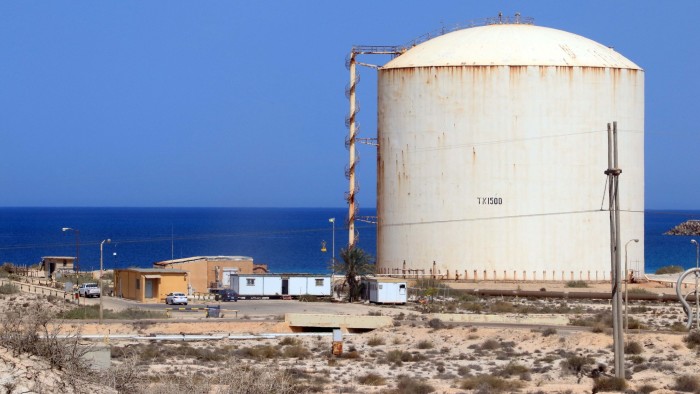Stay informed with free updates
Simply sign up to the Oil & Gas industry myFT Digest — delivered directly to your inbox.
BP and Shell have signed agreements to assess new opportunities in Libya, as international oil majors step up their return to the North African country more than decade after it collapsed into civil war.
Libya, which has huge reserves of oil and gas, remains one of Africa’s largest producers but has suffered from under-investment after international oil companies largely pulled out due to the fighting that followed the overthrow of strongman Muammer Gaddafi in 2011.
The country remains divided between a UN-backed government in the west and a rival administration in the east dominated by renegade general Khalifa Haftar. Nevertheless, international oil companies have been returning to Libya with Eni, OMV and Repsol all resuming exploration activities last year.
BP on Tuesday said it had signed a memorandum of understanding with Libya’s National Oil Corporation to evaluate the potential to redevelop the giant Sarir and Messla oilfields in the Sirte basin. It will also reopen its office in the capital Tripoli by the end of the year.
Separately, Shell confirmed that it had also signed an MoU with NOC to study oil and gas production opportunities, though Shell’s plans are understood to be at an early stage.
NOC wants to increase Libya’s oil output from 1.3mn barrels a day to 2mn b/d, a long-standing goal that would surpass the 1.75mn b/d peak achieved in 2006. It is currently running the first tender for new exploration rights since 2011. Several international companies are reported to have lodged interest.
BP helped Libya discover some of its first oilfields in the 1950s but had its assets nationalised in 1971 after Gaddafi had seized power in a military coup. It returned to the country in 2007, signing an expansive exploration agreement with NOC before suspending operations in 2011 during the civil war that led to Gaddafi’s overthrow.
In 2022, BP sold half of its interest to Italy’s Eni, which assumed operatorship of the joint venture, and in 2023 the two companies formally lifted the suspension and resumed exploration.
BP’s new agreement relates to two other areas, the Sarir and Messla oilfields, which were discovered, respectively, in 1961 and 1971.
Under the agreement, BP will evaluate opportunities to redevelop both mature fields and explore the potential of adjacent areas, the company said. It described the MOU as a “significant potential addition” to its Libya portfolio.
BP signed a similar deal in Iraq in March, where it is working with the government on the development of several mature oilfields in Kirkuk. The moves come as the UK-listed oil major is under pressure from investors to boost performance after a failed attempt to pivot towards greener forms of energy.
NOC said Shell would study the al-Atshan field and other areas controlled by the state company.
The two MOUs aimed to “advance the Libyan oil sector and increase productivity, thus leading to lasting economic stability in Libya”, NOC said.

